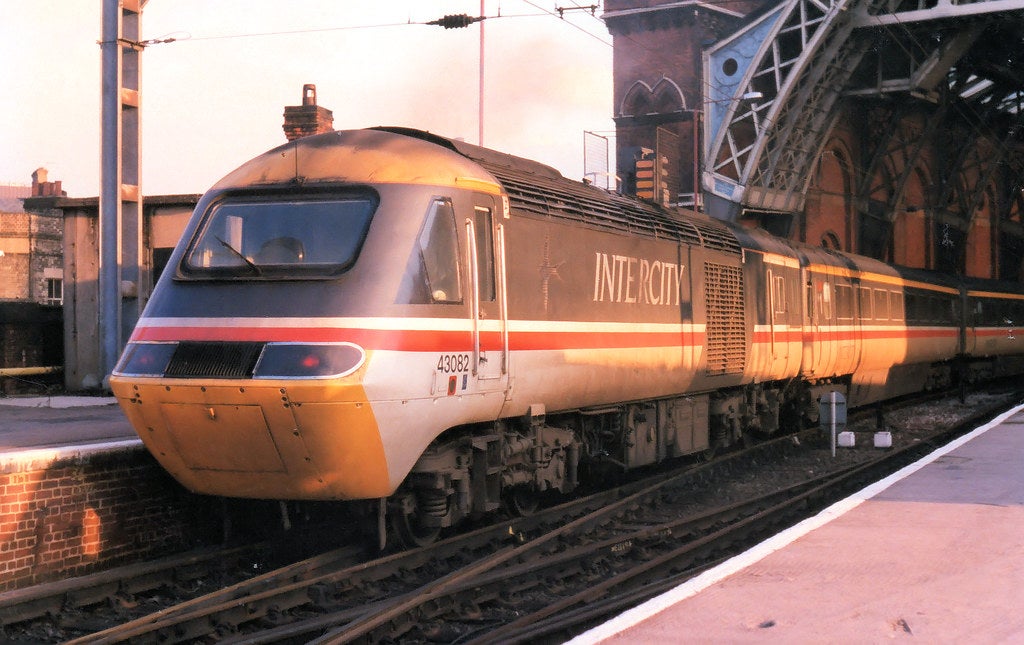Trains on UK railways now almost entirely state-owned – by foreign countries
Extensive state-ownership exists among UK rail operators, it just doesn't involve the British state
Your support helps us to tell the story
From reproductive rights to climate change to Big Tech, The Independent is on the ground when the story is developing. Whether it's investigating the financials of Elon Musk's pro-Trump PAC or producing our latest documentary, 'The A Word', which shines a light on the American women fighting for reproductive rights, we know how important it is to parse out the facts from the messaging.
At such a critical moment in US history, we need reporters on the ground. Your donation allows us to keep sending journalists to speak to both sides of the story.
The Independent is trusted by Americans across the entire political spectrum. And unlike many other quality news outlets, we choose not to lock Americans out of our reporting and analysis with paywalls. We believe quality journalism should be available to everyone, paid for by those who can afford it.
Your support makes all the difference.With rail fares set to rise again by as much as 2.8 per cent, the debate over whether the UK should renationalise the railways – which Labour made a 2017 manifesto pledge – has already reared its head.
This week the Trades Union Congress renewed its call for renationalisation, saying doing so would lead to lower ticket prices.
“We’re already paying the highest ticket prices in Europe to travel on overcrowded and understaffed trains,” the organisation’s general secretary Frances O’Grady said, adding that passengers shouldn’t be “subsidising private train companies”.
But a significant proportion of the UK’s railways already are under state control, with Network Rail in charge of around 75 per cent of the industry, including the tracks, thousands of stations and signalling operations.
But what of the train operators? There are over 20 operators of franchised passenger services, and discussions about renationalising the railways generally concern returning control of these services to the state.
But interestingly, almost all of these operators are (at least partly) state-owned already – only not by the British state.
As The Independent’s Europe correspondent (and transport aficionado) Jon Stone noted in a tweet on Wednesday, as Virgin Trains is soon reaching the end of the line, there are now few purely private operators left on UK railways.
Jon happens to be on holiday at the moment, otherwise we would have got him to write this article, but he has helpfully supplied a full list of all the states which have some kind of stake in each rail franchise operating in the UK. Thanks Jon.
It is worth noting that several operators have the same parent companies behind them.
Huge companies like Arriva UK Trains, Abellio and Govia run several operators.
For example, Govia runs Thameslink, Southern, Great Northern and Gatwick Express. The firm is a joint venture between Go-Ahead group and French company Keolis, which itself is 70 per cent owned by the French National Railways Corporation.

Meanwhile Arriva UK Trains is behind the operators, Chiltern, CrossCountry, London Overground, Grand Central, and Northern. In total it runs around a quarter of all British train operating companies, and is part of German firm Deutsche Bahn, in which the German state is the biggest shareholder.
Abellio is wholly owned by the Dutch national railways company Nederlandse Spoorwegen.
Private firm Virgin will no longer run the West Coast Mainline from December this year and the service will be run by a group consisting of the Italian state railway Trenitalia and private UK company First Group.
Here’s the full list:
c2c: Italian state
Chiltern: German state
Caledonian sleeper: PRIVATE
CrossCountry: German state
East Midlands: Dutch state
Eurostar: French state
Gatwick Express: French state
Grand Central: German state
Great Northern: French state
GWR: PRIVATE
Greater Anglia: Dutch state
Heathrow Express: PRIVATE
Hull Trains: PRIVATE
LNER: British state
London Northwestern Railway: Dutch state
London Overground: German state
London Underground: British state
Merseyrail: Dutch state
Northern: German state
Northern Ireland Railways: British state
Scotrail: Dutch state
South Western Railway: Hong Kong state
Southeastern: French state
Southern: French state
Stansted Express: Dutch state
TfL rail: Hong Kong state
Thameslink: French state
TransPennine Express: PRIVATE
Transport for Wales: French state
West Coast: Italian state
West Midlands Railway: Dutch state
With rail prices expected to rise, and large amounts of planned disruptive infrastructure upgrade work also costing the taxpayer billions, it is unlikely the calls for UK state ownership of rail companies are going to die down soon.

Join our commenting forum
Join thought-provoking conversations, follow other Independent readers and see their replies
Comments